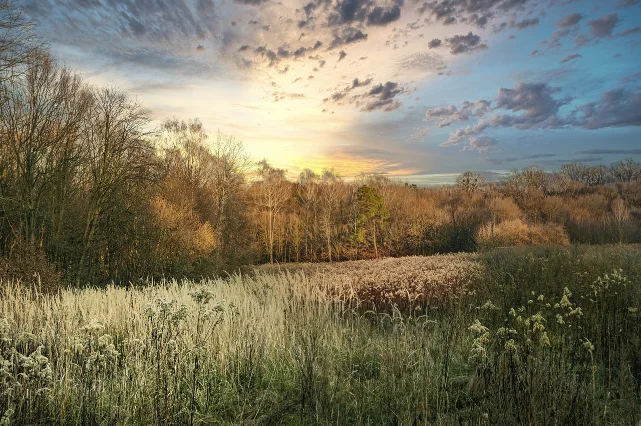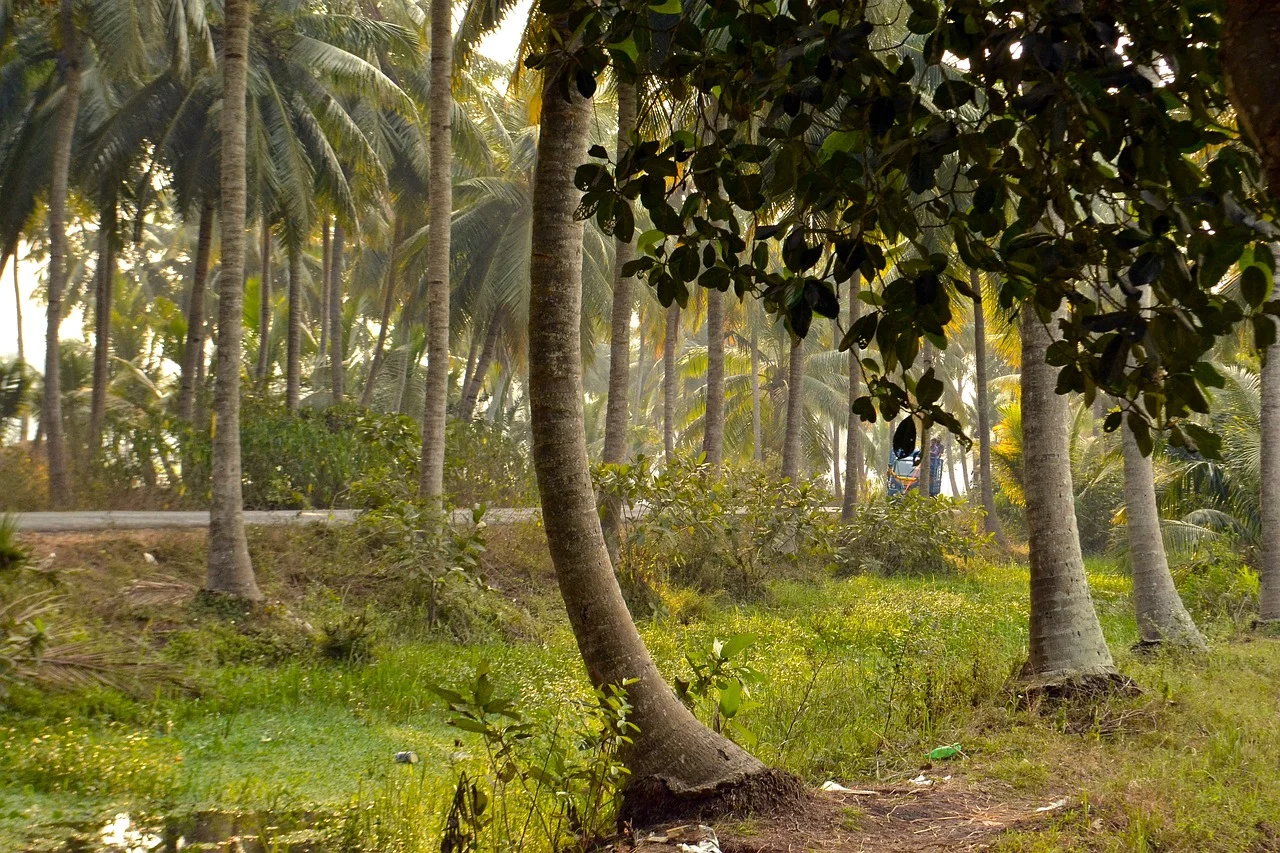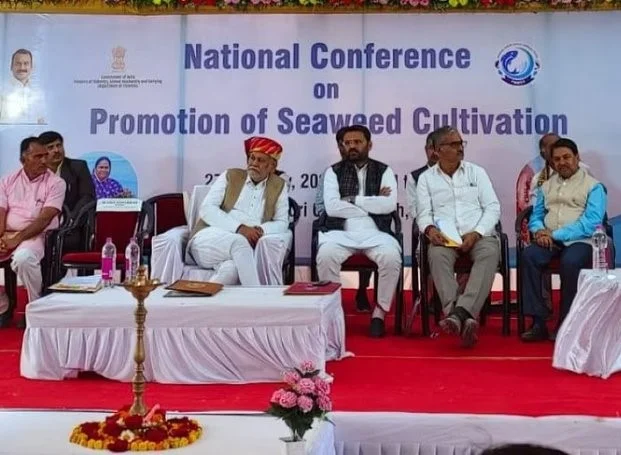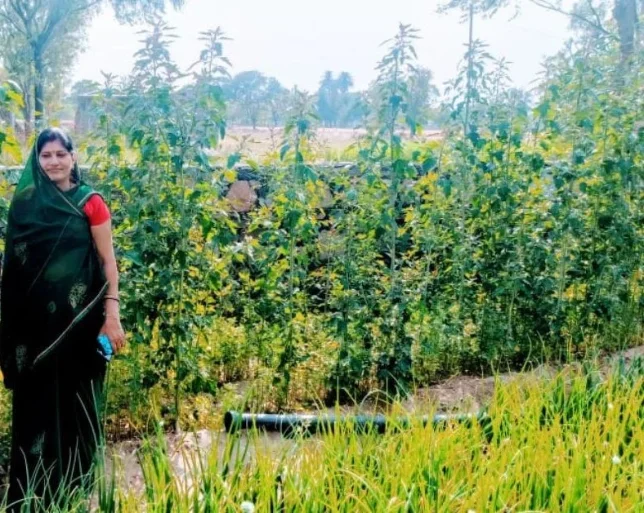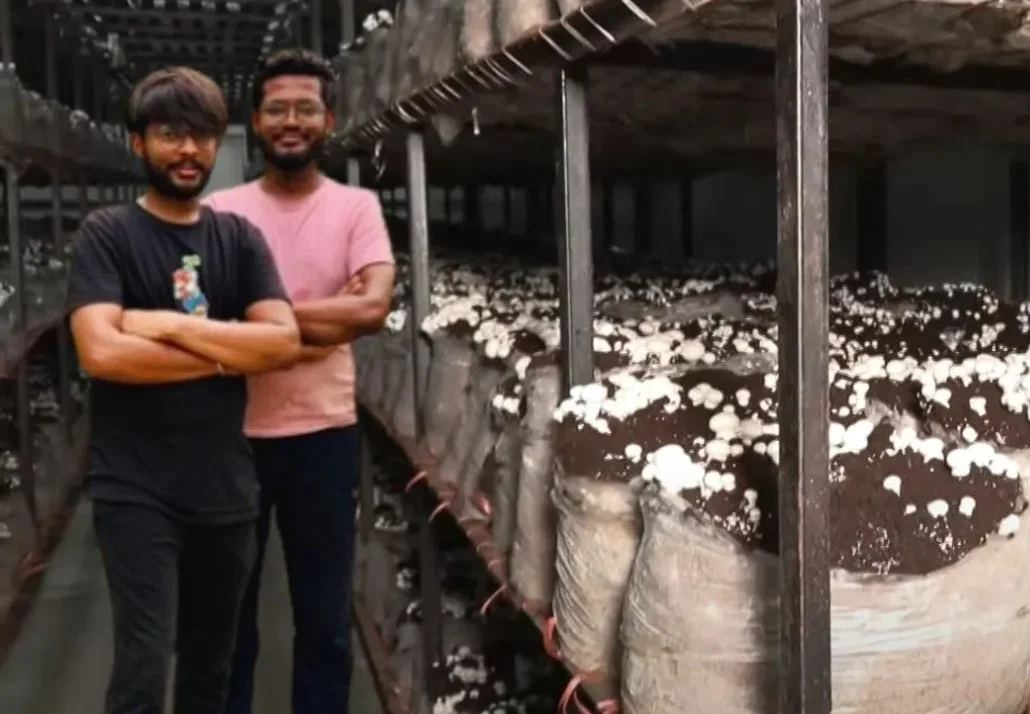Every morning at NGO Karm Marg, kids eagerly wake up excited about their classes for the day. They chat away while getting ready, with some heading to the nearby private school and others attending classes on the NGO’s premises.
Veena Lal, the NGO’s founder, emphasizes that each child here has a unique story. She says, “Every one of these kids has faced some form of trauma, pain, or struggles with mental health. Some deal with behavioral challenges like aggression, while others battle depression and various psychological issues. A few are malnourished, and some haven’t had the chance to attend school. Here, they receive education, along with training and preparation for adult life.”
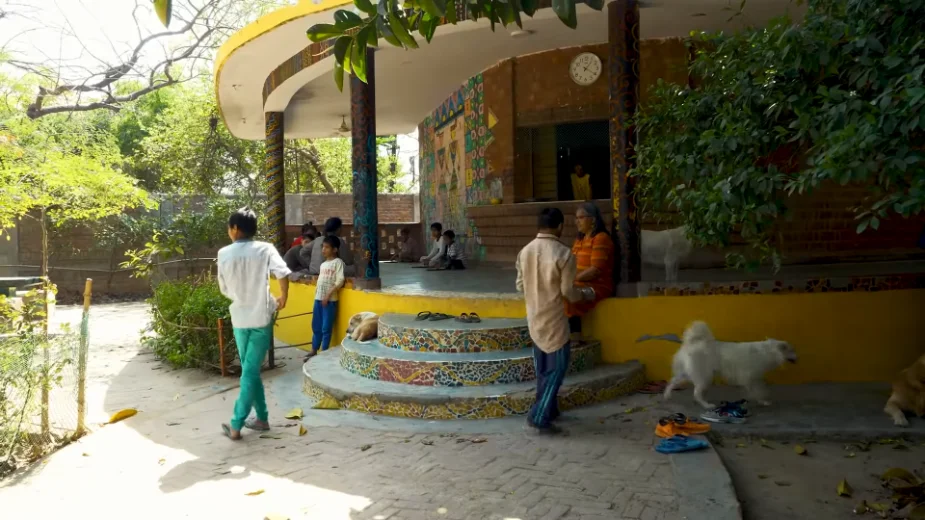
At Karm Marg, situated on the outskirts of Faridabad, approximately 54 children, without parents or relatives, live together in a supportive community. These boys and girls range in age from six to 18 years.
Veena explains that they were rescued from public places like railway stations and bus stations by the Child Welfare Committee (CWC) and entrusted to the care of the NGO.
Founded in 1997, Karm Marg distinguishes itself in various aspects, including its unique approach to caring for hundreds of mentally disabled children.
Making a Difference
“I’ve always had a passion for making a difference in people’s lives, especially children. After graduating, I joined an organization dedicated to working with kids. I spent about eight years there, but I soon realized that the children needed better care,” the 55-year-old explains.
Veena expresses her desire to introduce a more friendly and home-like approach to childcare. She says, “At the NGO where I worked, they separated girls and boys. I strongly believed that children should experience a life similar to that of kids at home with their parents, rather than feeling confined like in a prison. I wanted to offer them the freedom and opportunities they would have in a family.”
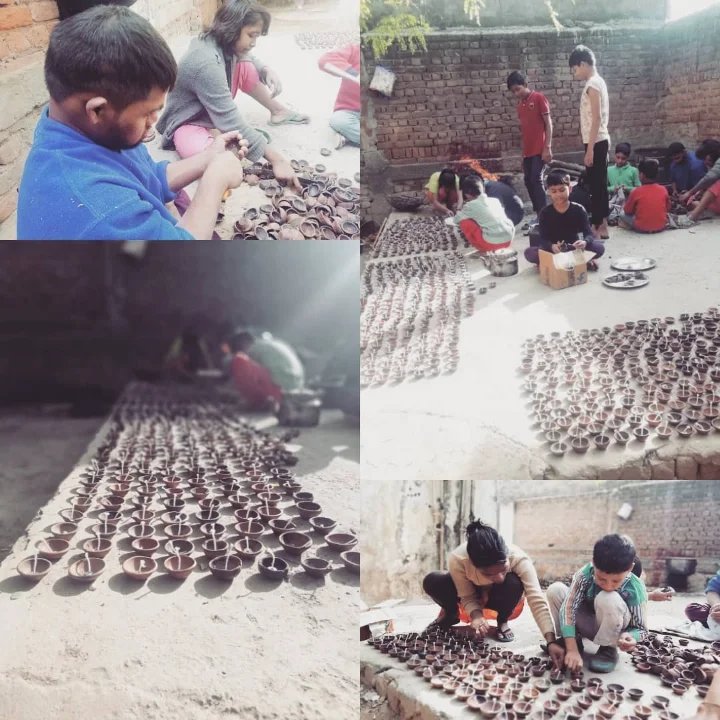
Veena emphasizes, “Having a mixed-gender setup helps children develop sensitivity and understanding towards the opposite gender. It’s crucial for them to grasp the significance of equal rights and opportunities. Additionally, separating boys and girls didn’t make sense, as in the real world, they have to coexist.”
To create a more conducive environment, Veena left her job and founded Karm Marg. “I began with 25 children in a small flat. However, the space was cramped, and within a year, we moved to a larger place,” she recalls.
Also Read: Couple harvest sweet Strawberries in Konkan’s heat: A Couple’s Permaculture success story
Recognizing the need for better living conditions, Veena, in 2000, invested her savings to acquire two acres of land on the outskirts of Faridabad. “Fortunately, I could use my savings to purchase the land,” she adds.
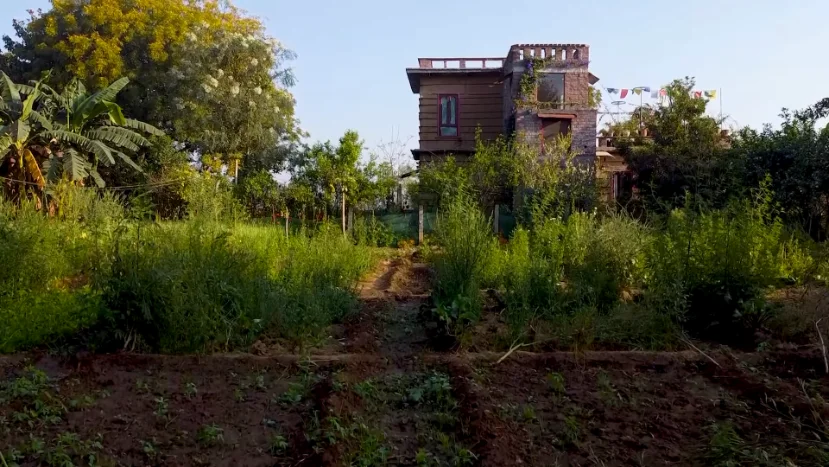
“We decided to create a mud house that’s eco-friendly and has eight rooms, ensuring enough space for the children to live comfortably. The design was a collaborative effort, with some of the children, who were studying architecture, actively participating,” she shares.
In 2003, the NGO officially relocated to their new premises. Today, the house includes a kitchen, a classroom, a training room, and living quarters for the children. “Kids who can manage regular schools attend classes, while those needing special attention receive homeschooling right here, guided by expert faculty. Classes typically start around 9:30 am. After finishing school in the afternoon, we involve them in arts and crafts. They take a break, play sports in the evening, and if necessary, visit the hospital. After returning, they study and then have dinner,” she elaborates.
The children stay with the NGO until they grow up and are then assisted in finding jobs, according to Veena. Since 1997, more than 1,500 children have lived with the NGO, and Veena has played a crucial role in helping them lead a dignified life.
Experiments with Organics
The Karm Marg home is surrounded by a variety of native trees and boasts a half-acre organic farm, providing sustenance for their family.
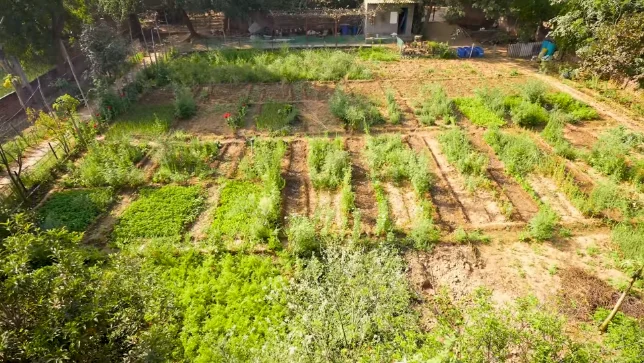
“In 2010-11, there was a lot of media coverage about the harmful effects of chemicals in vegetables. That’s when I decided to try something on the barren land and started planting indigenous trees like guava, chikoo, ber (Indian jujube), banana, and more,” she explains.
Veena shares, “The idea was also to connect the children with nature.”
Over time, she ventured into organic farming on the barren land. By 2015, Veena and the children had honed their agricultural skills and cultivated a thriving farm that produces all kinds of seasonal vegetables.
“We have enough supply for nine months, but during the remaining months, we rely on the market. The changing seasons make it challenging for us to farm throughout the year,” Veena notes.
Veena mentions that cultivating chemical-free food has led to cost savings and fewer hospital visits for the children. She says, “Kids no longer complain about vitamin deficiencies, low hemoglobin, or upset stomachs because their immunity has improved. Instances of colds and coughs have significantly decreased. Nowadays, the children mostly visit the doctor for physical injuries.”
Growing own food
At Karm Marg, the commitment to sustainable living goes beyond the walls of the shelter. Veena Lal, the visionary behind the organization, shares insight into their food-growing philosophy: “We mostly grow vegetables. We make our own compost. We don’t use pesticides. Our motive here was to include other beings such as butterflies, bees, birds and provide enough food for them too. It is not only about us but more about them.”
In 2006, Veena purchased the land, a once barren expanse. She recollects, “The land was barren then. For the first 3-4 years, we grew nothing here.” During this period, a unique approach was adopted. Instead of immediately cultivating vegetables, a specific type of weed with thorns was allowed to grow, contributing to the natural mulching process.
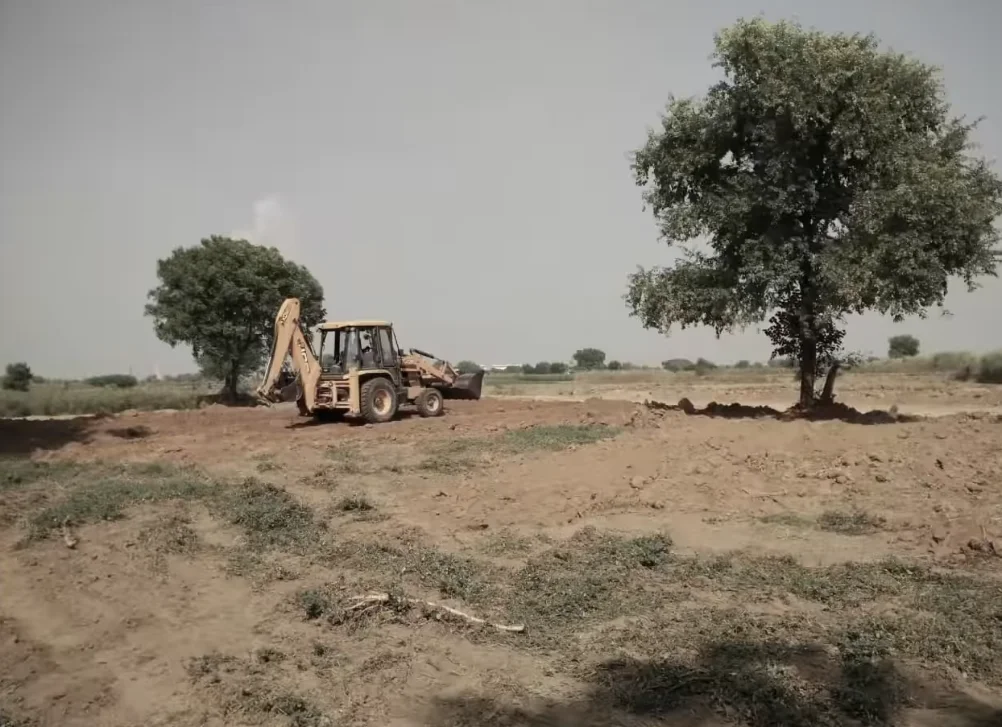
Veena explains, “After those 3-4 years, we started putting some dals, wheat, and millets. We let those grow and mulch in the soil too.” This patient and thoughtful process spanned 5-6 years before they embarked on growing vegetables. The meticulous approach to nurturing the soil laid the foundation for a sustainable and productive agricultural endeavor.
The initial two years of vegetable cultivation may not have been remarkable, but the third year marked a transformative change. Veena proudly shares, “The vegetables grew at an impressive pace. Now, the growth has reached such a level that we have started selling some of the produce left after our consumption.”
The harvest includes essentials like garlic, onions, turmeric, coriander, fenugreek, and fruits. Veena emphasizes, “Garlic grown is enough to sustain my home for a year. I don’t need to buy it. I don’t need to buy onions either as I store it once it is harvested. Similarly, I no longer buy turmeric, coriander, and fenugreek from the market. It has been almost 3 years that I haven’t bought fruits either.”
Beyond consumption, Karm Marg actively engages in creating its own seed collection. Veena affirms, “We also try to create our own seed collection. The ones that are left out are sourced from other organically grown locations.”
The commitment to sustainable agriculture at Karm Marg extends beyond growing staples. Veena shares, “We are growing okra on one part of the land. Last year, we had round gourd and ridged gourd here. And this year it will be okra. So this way, it keeps rotating. The location changes each season for each vegetable.”
This strategic approach to crop rotation not only ensures a diverse range of produce but also maximizes the fertility of the soil. Each season brings forth a new variety, contributing to the overall health of the land.
The story of the ‘jamun’ (black plum) tree at Karm Marg reflects the organization’s harmonious relationship with nature. Veena narrates, “We planted just 1 ‘jamun’ tree here. And now we have 3-4 trees here that sprung up on their own.” The spontaneous growth of these trees symbolizes the organic synergy between the land and the vegetation it nurtures.
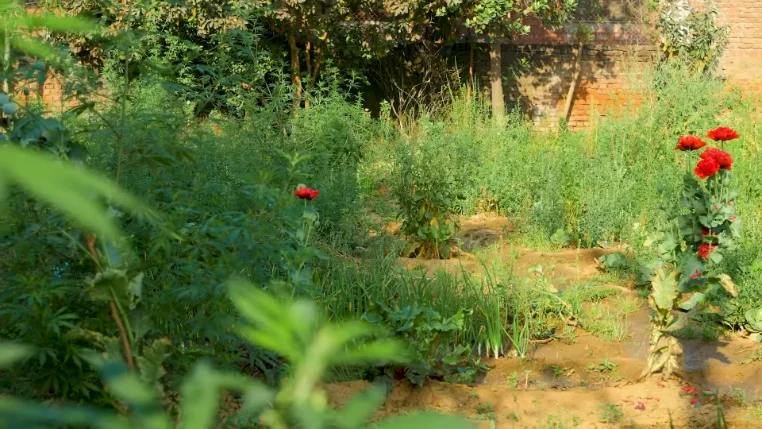
Veena’s friends have often suggested the idea of a vineyard at Karm Marg. She explains, “My friends always say that we should have a vineyard here, where one can crush and prepare grape wines. The grapes are also of good quality.”
Also Read: Man transforms poor barren land into lush green paradise through Water Harvesting in 2 years
“The main advantage of grapes is that once vines are fixed, they produce grapes for years to come without much maintenance. What’s special is that, in winters, it provides no shade and good sunlight as the leaves fall. And in summers, the vines are so full of leaves that it leaves a dark shade below.”
The fruit season at Karm Marg is a celebration of nature’s sweetness. Veena explains, “Fruit season starts in June, and right up till winter, we get sweet lemon, malta, oranges, etc.” This continuous supply of fresh, homegrown fruits not only enhances the nutrition of the children but also embodies the self-sustaining cycle that Karm Marg has established.
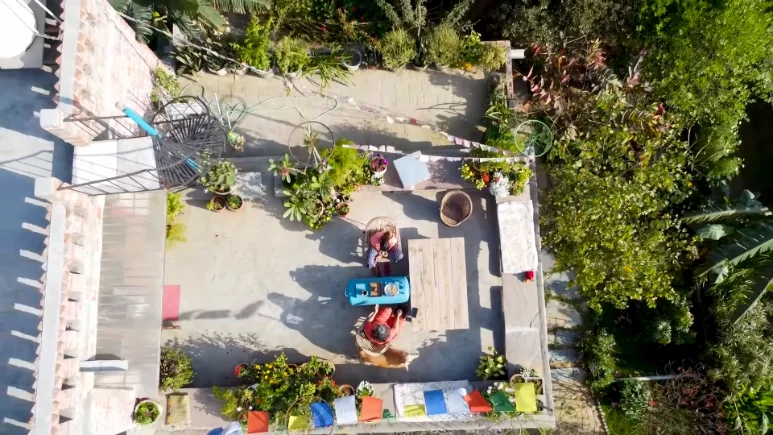
Beyond the bounty of vegetables and fruits, Karm Marg consciously selects plants that contribute to the ecosystem. Veena states, “We have selected plants in such a way that it provides food for birds, butterflies, and bees every year.” The farm has become a haven for chameleons and squirrels, adding to the biodiversity that thrives within its boundaries.
Delving into permaculture principles, Karm Marg has embraced a holistic vision of tree planting. Veena notes, “When you delve deep into permaculture, you realize that trees should be grown that provide to both humans and birds. So, that is where we brought about some change.”
The deliberate selection of trees with flowers that attract butterflies, bees, and birds ensures a symbiotic relationship. The same trees offer fruits, providing sustenance for both humans and the diverse bird population that frequents the land. This intentional planting has led to a remarkable influx of various creatures, contributing to the richness of the ecosystem.
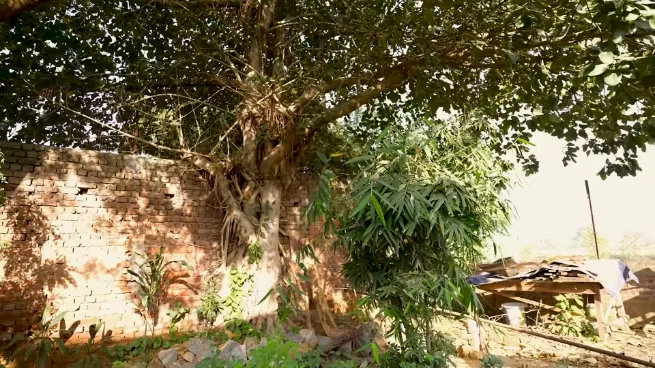
Despite discouragement due to its space requirements, Karm Marg holds on to the banyan tree, recognizing its pivotal role. Veena explains, “A lot of people discouraged us from keeping this banyan tree as it takes up a lot of space. But banyan is one tree that not only maintains a clean oxygen level but is also important to a lot of birds and their nesting.”
This majestic tree stands as a guardian, providing a clean and oxygen-rich environment while becoming a sanctuary for various bird species.
The cultivation at Karm Marg extends beyond providing food. Veena shares her daily ritual, “I drink ‘aparajita’ (butterfly pea) tea on a daily basis, which is very good for diabetes, inflammation, and asthma patients. Also, really good for mental health. A lot of our children come from a disturbed past. So, ‘aparajita’ tea works wonders with them.”
The ‘patharchatta’ (Kalanchoe Pinnata), categorized as a weed, finds its place at Karm Marg. While it requires some control due to its rapid growth, it serves medicinal purposes for kidney health and healing bruises.
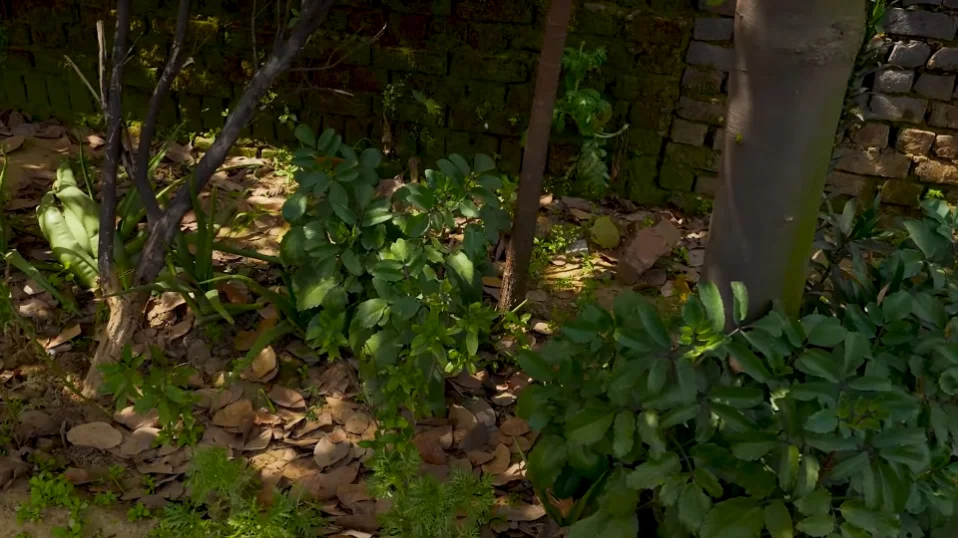
Aloe vera, a versatile plant, has found its home at Karm Marg. Used for making shampoos, bathing, and cooking, it embodies the organization’s commitment to utilizing the land’s resources sustainably.
In essence, Karm Marg’s land is not just a place of residence; it’s a sanctuary where nature’s harmony is preserved and celebrated. The intentional choices in flora reflect a commitment to biodiversity, holistic well-being, and the enduring bond between humans and the natural world.


